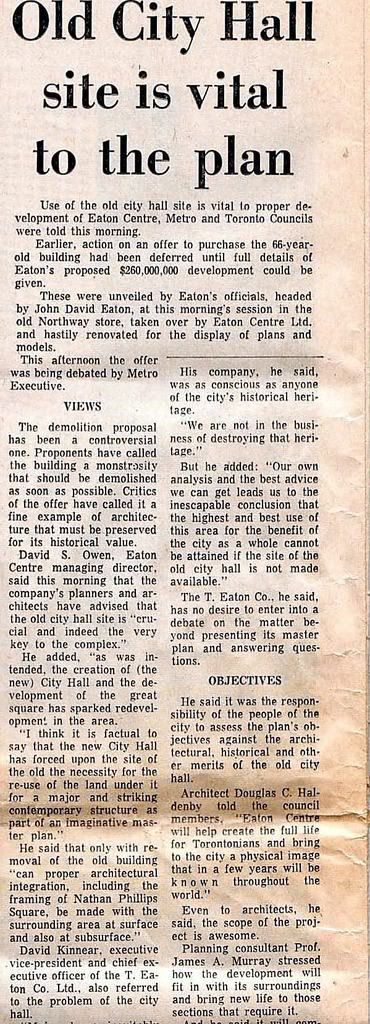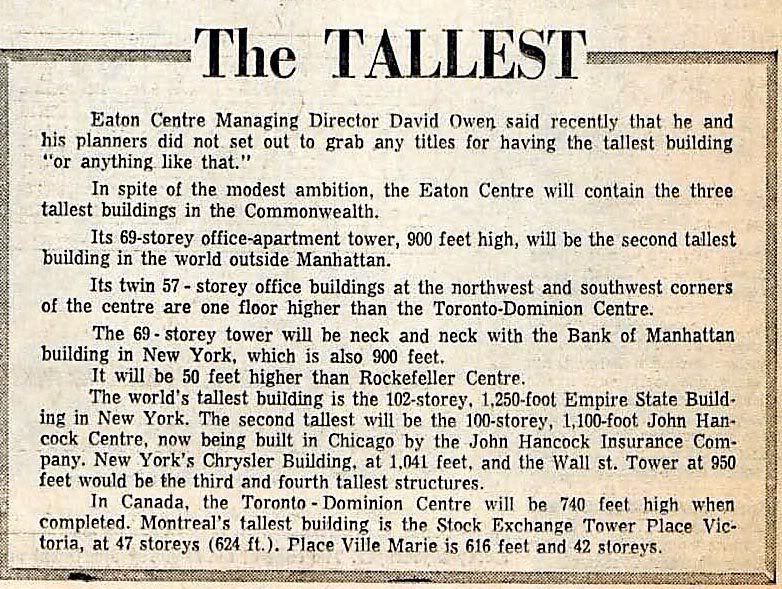For what it's worth, my thoughts:
Loss of Princess of Wales If there is such an overcapacity of theatres in the city, one might wonder why Mirvish put up such a fight to prevent Dancap from acquiring the Canon Theatre. Mirvish cannot on one hand seek to be a near monopolist on mainstream theatre in the city and at the same time complain about too much theatre capacity. I'm not saying it should prevent this project from going ahead, but as someone who attends musical theatre occasionally it will be sad to see Princess of Wales go because in my view it is far superior to our other theatres. The other theatres like Royal Alex, Mirvish and Elgin are nicer to look at, but when the lights are down the Princess of Wales is a way better place to watch the show - better in my view than most Broadway theatres.
I agree that, of all of our theatres, we are losing the best one. That said, I don't think you can criticize the general "oversupply" concern with the fight against competition as, somehow, contradictory/hypocritical. In fact, in any business, if there is a general oversupply it is better (from a business point of view) to own more/all of the oversupply yourself. Oversupply, spread across many owners, leads to price wars which lead to low margins which leads to losses. If you control/own more of the supply (speaking specifically about theatres) you can address the matter by shuttering or finding alternative uses for the theatre space. If your competition owns/controls significant parts of it they will do what competitors do...they will compete and price is the best way to compete (so they will, either/both, overpay for productions or undercharge for tickets) which can drive both entities to financial issues.
Think Canadian Airlines and Air Canada....too many seats in the air....both entities losing money......but they competed on price (meaning that the more tickets each sold the more they actually lost)....to some it was counterintuitive for Air Canada to actually get bigger by buying Canadian Airlines but the alternative was, likely, the death of both of them.
Lots of businesses (in various fields) that are facing tough economic times find the best thing to do is to grow by acquistion.
To keep this in a real estate theme.....it is one of the reasons Toronto's downtown office market withstands the threat of new supply so well. The ownership of our downtown buildings are concentrated in very few hands. The same hands that, generally, account for a significant portion of the new supply. So when tenants leave old(er) buildings for the shiny new towers the response is investment in the older towers to bring them closer to modern standards/expectations. In many other markets (a lot of US markets for example) there is a broader base of more local ownership and their response to increased competion is, often, slashing the rental rates on the older stock.
As for the Hyatt comment....I think that is just a brand...I do not think they own that property. That building was, I think, developed and is owned by Greywood. I would think the Hyatt is tied to them for a while (given how recent the re-brand was from Holiday Inn and the money spent to get to that point) by contract.











